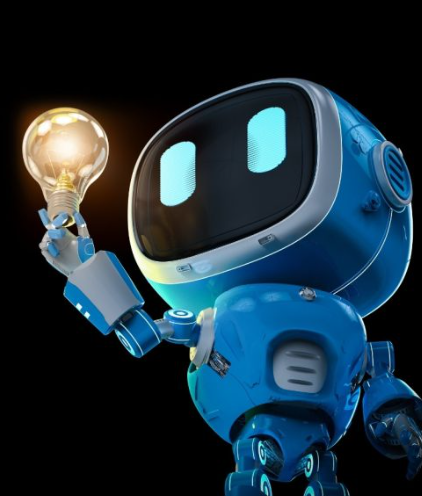Project management remains one of the toughest challenges for organizations, with only 35% of projects meeting their goals, timelines, and budgets, according to the Standish Group’s 2022 CHAOS Report. Why do so many projects fail? Issues such as unforeseen risks, misaligned expectations, and communication breakdowns often transform well-planned projects into costly delays. In 2025, project managers face increasing complexity—global teams, tighter deadlines, and shifting priorities. The real challenge isn’t just execution; it’s the ability to anticipate and adapt quickly.
Generative AI is stepping in to fill this gap, transforming project management from a reactive task to a proactive, strategic process. With AI adoption quickly becoming standard practice, 82% of senior executives now expect AI to play a pivotal role in shaping project management strategies. Generative AI isn’t just about automation; it serves as a co-creator, allowing project managers to tackle challenges with foresight and flexibility.
Imagine a project manager racing against a tight deadline for a product launch. Generative AI analyzes past projects and market trends to draft a detailed project plan, suggests a communication strategy based on previous stakeholder engagements, and proposes contingency plans for potential risks—all while allowing room for human adjustments. It’s not just about saving time; it’s about enhancing a project manager’s ability to strategize, align teams, and deliver with confidence.
This article explores how generative AI can elevate your project workflows, anticipate needs, and provide actionable insights. It’s here not to replace project managers, but to empower them—turning every project into an opportunity for innovation and resilience.
Generative AI: A Creative Collaborator in Project Management
Generative AI is stepping into the role of a creative partner rather than just an assistant. It brings both speed and perspective to complex project decisions, setting it apart from traditional planning tools. By co-creating ideas, strategies, and content, generative AI sparks innovation in ways that conventional tools cannot.
For instance, in a cross-functional product team, tight deadlines and unclear direction can create chaos. Generative AI can analyze past launches, customer feedback, and competitor trends to provide valuable insights. Within minutes, it surfaces ideas, suggests themes, and even drafts communication frameworks, turning what could’ve been a week of brainstorming into a productive launchpad in just a few hours. This shift in productivity is backed by McKinsey’s 2023 report, which found that 75% of generative AI’s business value is in enhancing operations, marketing, and R&D—key elements of modern project management.
Generative AI’s ability to anticipate and offer solutions enhances resilience by enabling proactive, scenario-based planning. For example, if a staffing shortage is predicted mid-project, AI doesn’t just note the problem but also provides alternatives—such as resource models, revised schedules, and client communication plans—in mere minutes.
Augmenting Human Intuition with Generative AI
Project management has always required a balance between data and human judgment. What generative AI offers is the ability to extend human intuition with deeper, faster insights. It can detect subtle issues like communication gaps or overlooked risks that could derail progress. For instance, if a globally distributed team is showing signs of communication friction, AI can detect these patterns in emails and suggest a tailored communication strategy based on previous successes. This boosts alignment subtly but effectively, something that traditional reports would miss.
This synergy between human intuition and AI analysis creates a more efficient and empathetic decision-making model. While AI surfaces patterns and provides insights, humans can interpret them with emotional intelligence and business context, resulting in smarter, more holistic decisions.
Predictive Simulations for Data-Driven Decision-Making
Generative AI doesn’t stop at analyzing past data—it also simulates potential future outcomes. By generating multiple “what-if” scenarios, it provides project leaders with a sandbox to test uncertainties before they turn into setbacks.
For example, generative AI might run simulations on a potential staffing shortage mid-project. It doesn’t just predict the impact on delivery—it also recommends backup resource models, new schedules, and how to communicate with clients, all in a matter of minutes. This capability, known as resilience forecasting, moves away from static risk logs and embraces dynamic scenario planning. It helps project managers not only brace for change but also prepare to thrive in the face of it.
A 2024 Capterra survey showed that 93% of project managers using AI tools saw improved ROI, particularly in risk management and contingency planning. This demonstrates how predictive intelligence can significantly enhance decision-making and planning.
Generative AI in Modern Project Management
Generative AI is transforming project execution—not by replacing people but by amplifying their impact, especially when dealing with complexity. Here’s a breakdown of how AI enhances various aspects of project management:
- Automation: For repetitive, data-driven tasks, AI can automate:
- Project status reports and summaries
- Updates in project management tools like Jira, Asana, or MS Project
- Scheduling and resource distribution
- Operational quality checks in manufacturing or engineering projects
- Guidance: For mid-complexity tasks, AI serves as a digital assistant, enhancing insights while keeping humans in control. Examples include:
- Drafting project documentation such as charters or RACI charts
- Proactively identifying risks based on historical data
- Offering mitigation advice for identified risks
- Extracting market insights to guide strategic programs
- Augmentation: In high-stakes, complex situations, AI helps enhance decision-making with broad, context-aware insights. This includes:
- Advanced scenario modeling for uncertain outcomes
- Complex decision support by integrating data across stakeholders
- Supporting business case development by analyzing ROI potential and strategic alignment
Overcoming Challenges in Integrating Generative AI
While generative AI offers substantial benefits, its implementation comes with challenges that need to be addressed:
- Data Privacy: AI tools require access to sensitive organizational data. Ensuring compliance with standards like GDPR and HIPAA is essential.
- Training Data Quality: AI’s performance depends on the quality and diversity of its data. Gathering and maintaining accurate, unbiased datasets is complex and resource-intensive.
- Workforce Integration: Adopting AI can disrupt existing workflows. Teams need intuitive tools and training to make the most of AI’s capabilities.
Organizations must balance innovation with ethical safeguards and operational readiness to fully unlock the potential of generative AI.
The Role of Predictive Intelligence in Enhancing Generative AI
To complement generative AI, predictive intelligence adds another layer by using historical and real-time data to forecast project outcomes. While generative AI provides creative solutions and simulations, predictive intelligence helps quantify those options, guiding smarter resource decisions and preempting potential issues.
For instance, predictive models might evaluate different resource plans generated by AI, assessing each against past data to determine the most viable option. This combination of generative AI and predictive intelligence enables a proactive approach to project planning, ensuring risks are minimized, resources are optimized, and decisions are data-driven.
A 2024 study showed that predictive analytics can save up to 15% on resource costs by making smarter decisions earlier in the process.
Conclusion: The Future of Project Management
The future of project management lies in combining generative AI with predictive intelligence to create an intelligent, adaptive system that evolves with the needs of the business. This shift is already happening, and project managers are becoming strategic integrators who align delivery with business value, ensuring smarter, faster, and more resilient project execution.
By 2026, over 80% of enterprises are expected to adopt generative AI. When paired with predictive intelligence, organizations will move from firefighting to foresight, with a proactive approach to managing project uncertainty.



